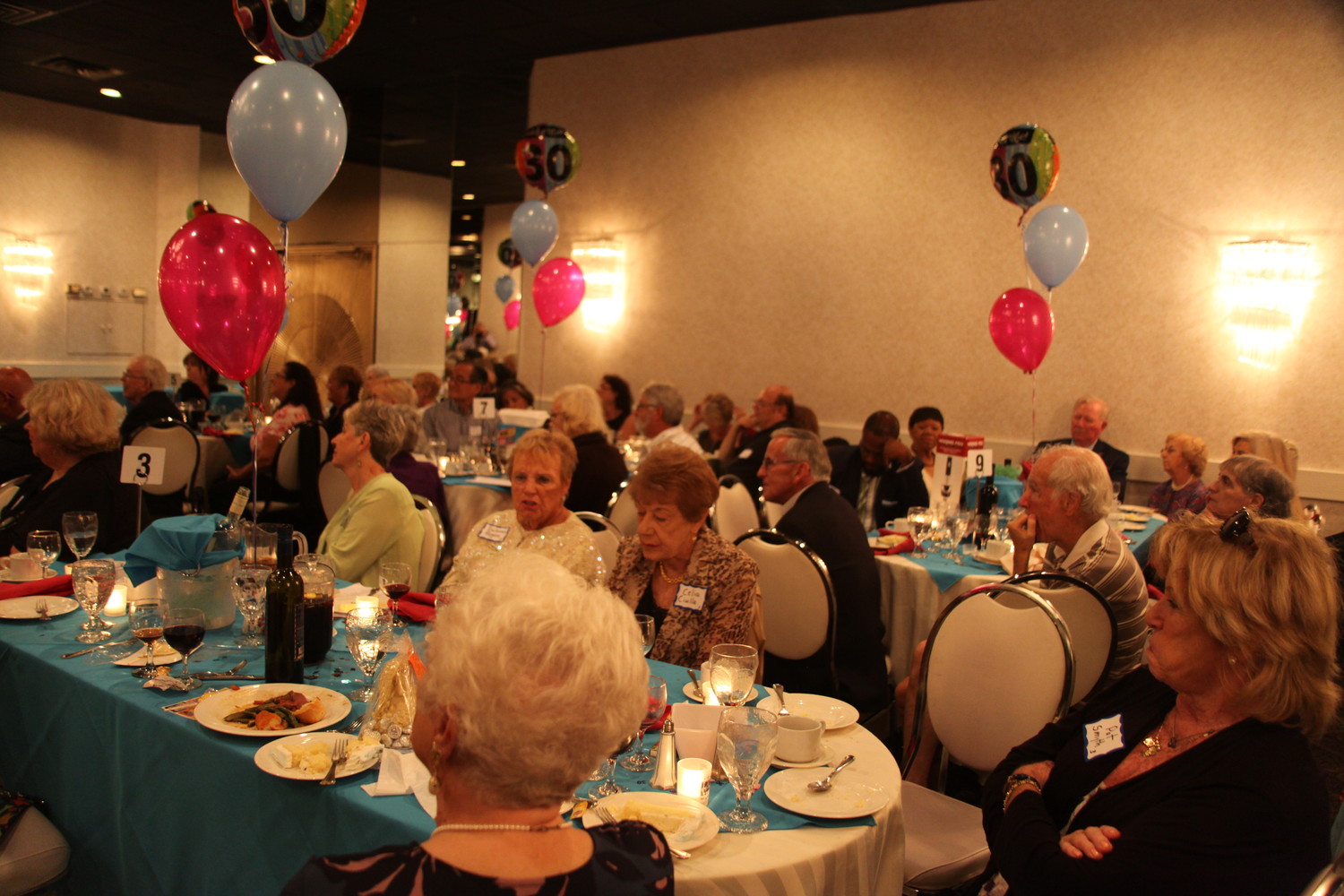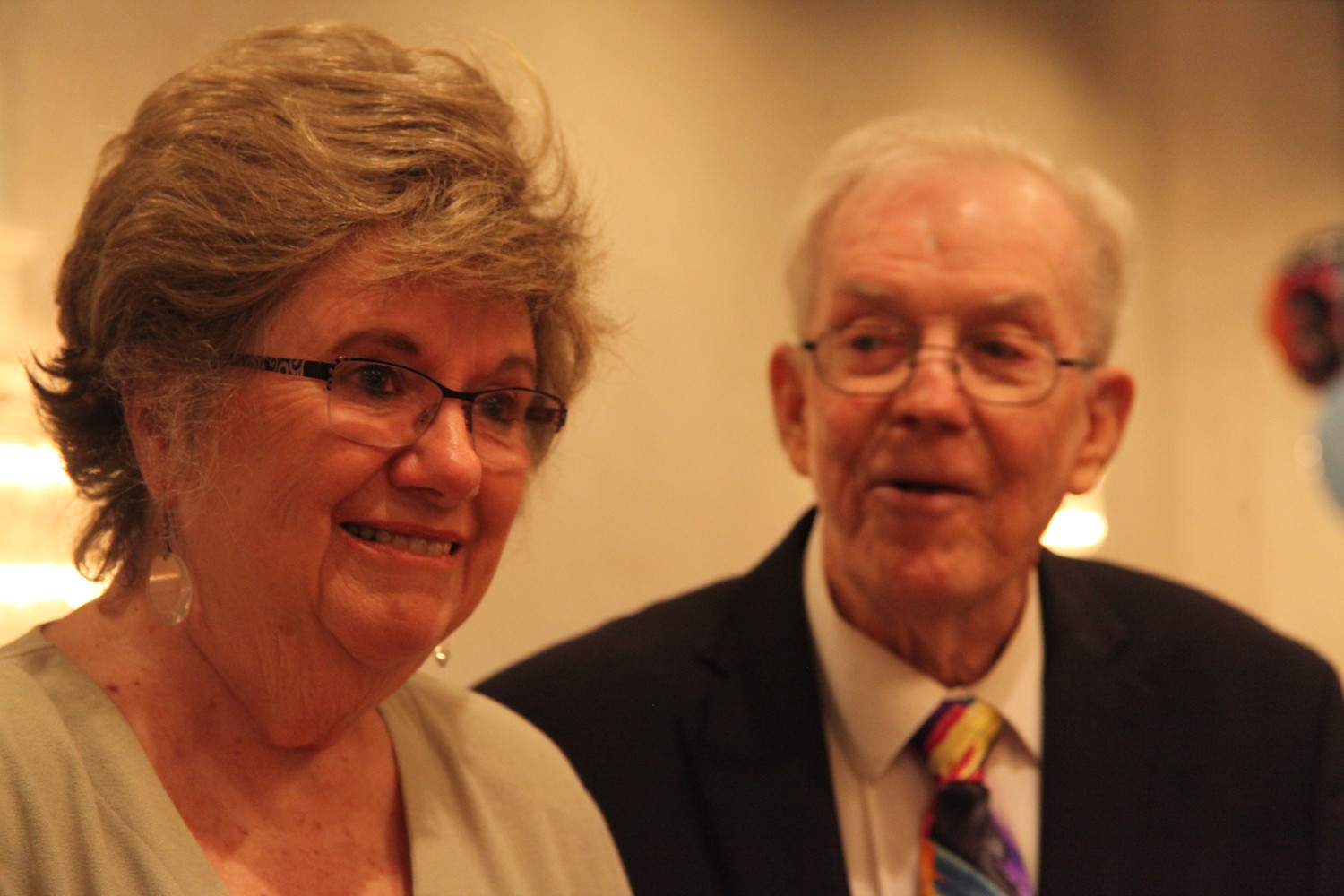Compassionate Friends of Rockville Centre helps grieving parents carry on with their lives
‘If their song is to continue, then we must do the singing’
The mood in Hays Theatre at Molloy College had a surprising levity given that the gathering was a support group of parents whose children have died. Before Elaine Stillwell, co-founder of the Compassionate Friends of Rockville Centre, called the meeting to order, members mingled, talked and laughed as they helped themselves to slices of birthday cake.
The people whose names were written on the cakes were not present, but the Compassionate Friends celebrated as though they were.
The group takes birthdays seriously. It’s a tradition for the parents to bring a selection of gifts to the group’s meetings during their children’s birthday month. When members sign in at the door, everyone’s children’s names are placed in a raffle bucket. At the end of the meeting, Stillwell calls out a name for each of the gifts, and each parent of the child called upon is presented with one, as though one deceased child is attending the birthday party of another.
The group celebrated its 30th anniversary at an Oct. 8 luncheon. Stillwell and her husband, Joe, founded the group in 1987, after they lost their two oldest children, Peggy and Dennis. “I had been to the library, and I got the six books on grief that they had,” Elaine recalled, “and all the books mentioned the Compassionate Friends.” The nearest TCF group was in Babylon, she said, so she and Joe started their own.
Elaine opened the October meeting the same way she does every month. “Elaine Stillwell,” she began. “I lost my son, Dennis — he was 21 — and my daughter, Peggy, 19, in a car accident 31 years ago.” She passed the microphone around the room, inviting the other members to introduce themselves and their late children.
More than 50 parents from around Long Island — some from as far away as Brooklyn — took turns for nearly a half hour, noting their children’s causes of deaths, which included medical issues, sudden and prolonged, accidents, overdoses and suicides.
Some had been with the Compassionate Friends for over a decade, and they introduced themselves and their children with startling frankness. The voices of others, just months removed from losing their children, were shakier. The five first-timers in attendance all refused the microphone. Stillwell prompted them off-mic, and they responded, sometimes through tears. She used her own practiced voice to introduce them.
Though the exercise can be overwhelming, she later explained, it’s a way to show that everyone is in the same situation. “It helps newcomers see that life does go on,” Stillwell said. “It’s important for them to hear someone say, ‘I lost my child 11 years ago.’ It’s about knowing that there’s hope, that there can be a life afterward.”
The group encourages parents to integrate their children into that life. “Share your child with the world,” Stillwell said. “Tell their story again and again,” even if it makes others uncomfortable. She said that people who haven’t lost a child — whom she called “civilians” — often try to control others’ grief. “Don’t let them,” she advised. “If their song is to continue, then we must do the singing.”
One member said that when people tell her that her son is “in a better place now,” she replies, “Which of your family members would you want to send there?”
One of the best ways to cope, Stillwell said, is to perform creative, generous acts in honor of the deceased, like Brian and Kathleen Gewirtz, whose son Brian died in 2015. A few months ago, the Gewirtzes, thinking about Brian’s love for dogs, turned empty land in their housing development into a dog park in his honor.
Stillwell considers leading the Compassionate Friends her creative, generous act, and many other members similarly look to serve others who are grieving.
Laura Ameruso, of Roslyn, whose brother Jason died on New Year’s Day 2006 of sudden heart failure, is the greeter for the siblings group, for those who have lost a brother or sister, which meets in a separate room. Ameruso said she couldn’t imagine losing a child, like her mother, Mary, did, but that siblings face different types of challenges.
“Sometimes what parents don’t understand is that we are going through grief, too,” she said, “and they don’t always know how to handle discussing that.” She added that sometimes a parent’s grief falls hard on siblings, and that sometimes they must take on parental responsibilities. “I planned the funeral,” Ameruso said, “and I called [Jason’s] girlfriend and told her. I look back and I think, ‘How did I do that?’
“He’s my playmate, he’s my best friend, he’s my buddy,” she continued. “I knew everything about him. I know where his skeletons are buried,” she joked, “and they’re never coming out. But sometimes I get to tell my mother something she didn’t know about him.”
Mary Ameruso said some of her happiest moments have come when she has learned something new about her son.
“It’s amazing,” she said. “The things you find out about your children after they’re gone.”

 48.0°,
Overcast
48.0°,
Overcast 







